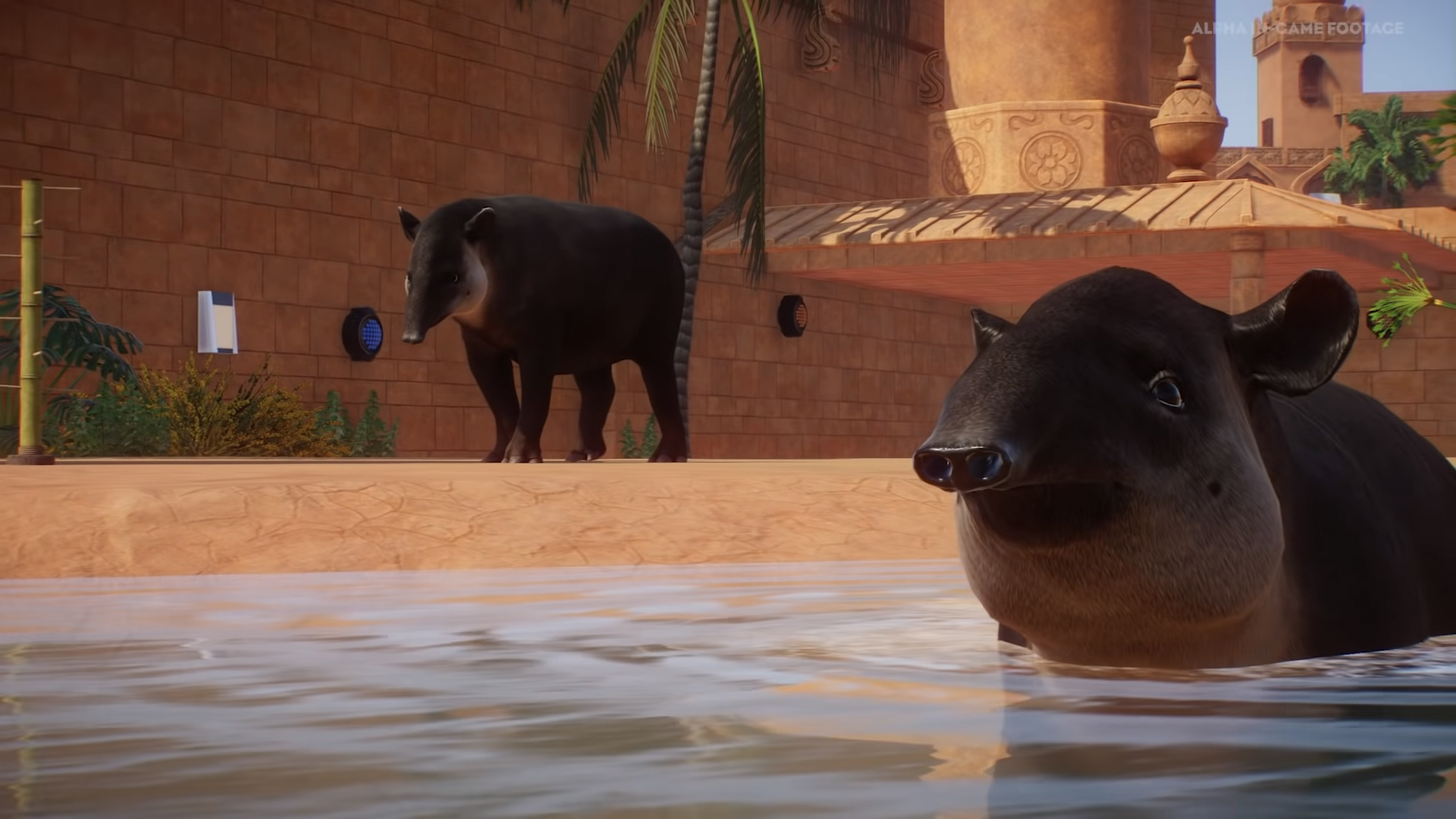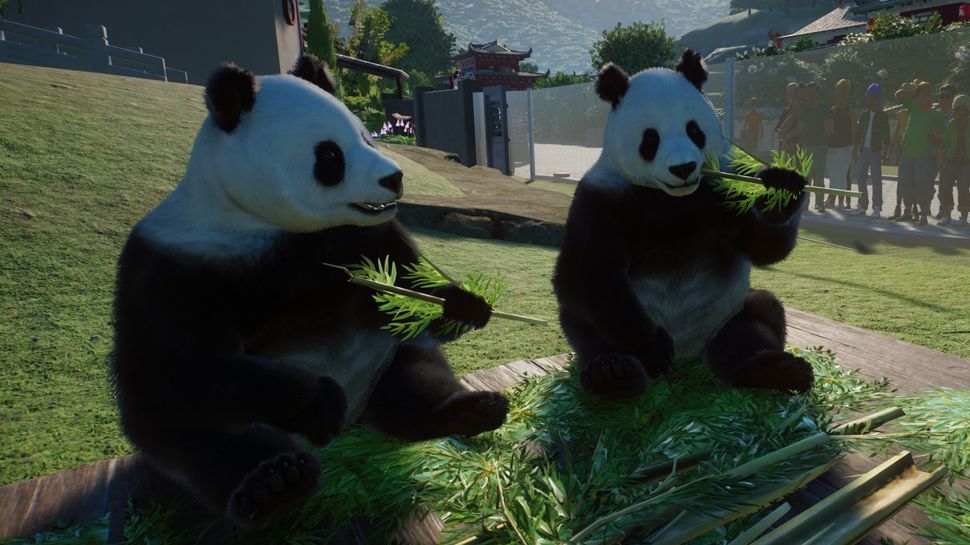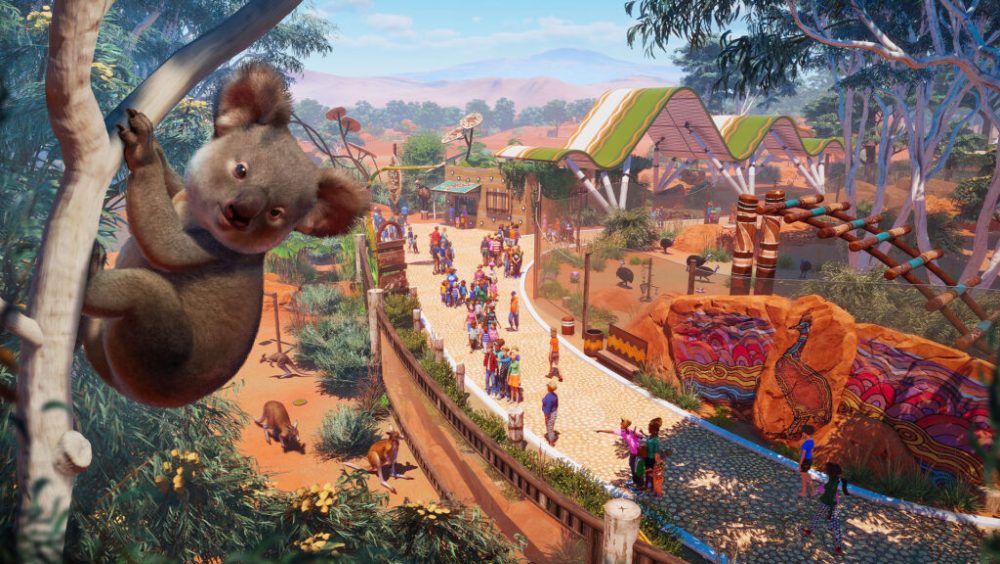
The environments appear more realistic than in Coaster, with real detail being added to trees, grass and general foliage. Characters retain their cartoonish quality, but generally look a little more detailed than their predecessors. Generally, the graphics looks a lot smoother and much more slick. It’s a simple mode, but the one I enjoyed the most. Giving you an empty plot of land to build on, you have to manage your zoo carefully if you want to expand it.

Then you have franchise mode, which falls somewhere in between.

There’s also the obligatory sandbox mode, allowing you to build away to your heart’s content without cash flow worries. Planet Zoo has a career mode, which sees you managing a different zoo on each level, similar to most tycoon games. Planet Zoo also allows you to breed animals, however, animals all have a personalised genome, meaning that you can’t simply inbreed your animals to make a quick buck without the consequences of doing so.

They can’t stay stored forever, so have that enclosure ready for their arrival.Īnimals also behave in different ways, mirroring how they would act in the wild, for instance some animals may prefer to live in a pack, or others may be more solitary, all these factors affect an animal’s happiness. Animals are adopted via the animal adoption screen and go into storage awaiting their move to an enclosure. Paths can hold the usual stuff: benches, bins, lights, as well as picnic areas and donation boxes. You can control the temperature of an enclosure, as well as add enrichment items and toys to keep your animals happy. There’s a few different elements that Planet Zoo adds. Some animals may need sand, and a little grass, whereas some may need rocks and lots of foliage. For instance, a snow leopard isn’t happy in a desert biome, nor would a tortoise be happy in a tundra biome. Zoo Tycoon and similar titles all gauge an animal’s happiness on getting their environment right, which is the same in Planet Zoo. Gameplay wise, Planet Zoo doesn’t do anything particularly different from its competitors. Also, with graphic improvements and a better choice of items, buildings look a lot better and more realistic then they did in Coaster. Buildings are constructed in a grid based system, and pieces can be added to form walls, columns, floors and decoration, which all snap to this grid. A gate also must be added to allow staff to enter.īuildings are constructed exactly as they are in Coaster, with Planet Zoo using a free-form version of creation that allows players to place objects and paths however they please. After placing a starting point and you’ll see holographic-like representation of you next piece of fence, which will glow blue, or red if you’re attempting to place it in an unbuildable area. Similar to building paths, you place your initial fence post, then place a second to form a piece of fence. They’re often unwieldy to place down: they’re good for creating large sections of pathway, but those wanting to make symmetrical or very specific paths may struggle.Įnclosures are built differently to any other structure in either Zoo or Coaster. Path-making was one of the weakest elements of Planet Coaster, and sadly this is also the case in Zoo. Paths can be placed down to guide guests around the Zoo and lead them to enclosures or shops etc. Planet Zoo shares Planet Coaster’s engine, meaning that if you’ve played Coaster, then the Zoo’s UI should be familiar to you. Once you have all three, you can progress to the next episode. Each level tasks you with achieving objectives to gain a bronze, silver or gold star. Planet Zoo, as you can imagine, will task you with running, or building, a zoo, and then growing and maintaining it. Enter Planet Zoo.įor those totally new to the genre, tycoon games see you building a business and making money. Since then, a dozen or so DLC packs have been released for the game, but while all these little pieces of DLC were being released, Frontier would be working on a spin-off for the series.

That game was Planet Coaster, which I reviewed for this very site. Back in 2016, Frontier Developments released a spiritual sequel to Rollercoaster Tycoon 3.


 0 kommentar(er)
0 kommentar(er)
